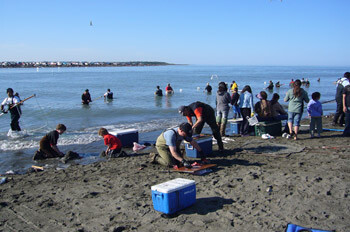Alaska’s commercial dipnet fishery is getting more time on the water this season, following an expansion approved by the State Board of Fisheries in March.
The board’s decision, reported by Peninsula Clarion’s Jake Dye, extends fishing hours from 7 a.m. to 7 p.m. Monday through Friday, increasing opportunities for participants while maintaining limits aimed at protecting struggling king salmon stocks.
The expansion came from a proposal by Joseph Person, who initially sought to allow 12-hour openings every day of the week. The board unanimously approved the increase on March 15 but adjusted the plan to restrict operations to weekdays. The season will continue to run from June 20 through July 31, rejecting Person’s request to extend it through mid-August. Additional provisions now allow dipnet fishermen to operate on City of Kenai shore leases and require them to record any released king or coho salmon on a fish ticket.
Board member Curtis Chamberlain, who submitted the amendment to the proposal, emphasized that increased fishing time would provide more financial stability for participants while encouraging innovations in dipnet gear.
“A continued increase in fishing time for this group would allow greater access to this resource, given the high sockeye numbers and relative low king and coho mortality,” Chamberlain said, as quoted by the Clarion.
The commercial dipnet fishery was introduced last year as an alternative for east side setnetters affected by the Kenai River late-run king salmon action plan. Under the plan, setnets are prohibited until projections show an escapement of 14,250 large king salmon (those over 24 inches). Since the Alaska Department of Fish and Game began counting only large kings in 2020, the stock has failed to reach that threshold. Last year’s count was just 6,600, and this year’s projection remains low at 8.700.
While the expansion may provide more opportunity, a survey conducted after the fishery’s first season found that participation was low and profitability was even lower. With the board set to revisit Upper Cook Inlet fishing regulations in 2027, all eyes will be on whether this dipnet experiment can gain traction among commercial fishermen.







